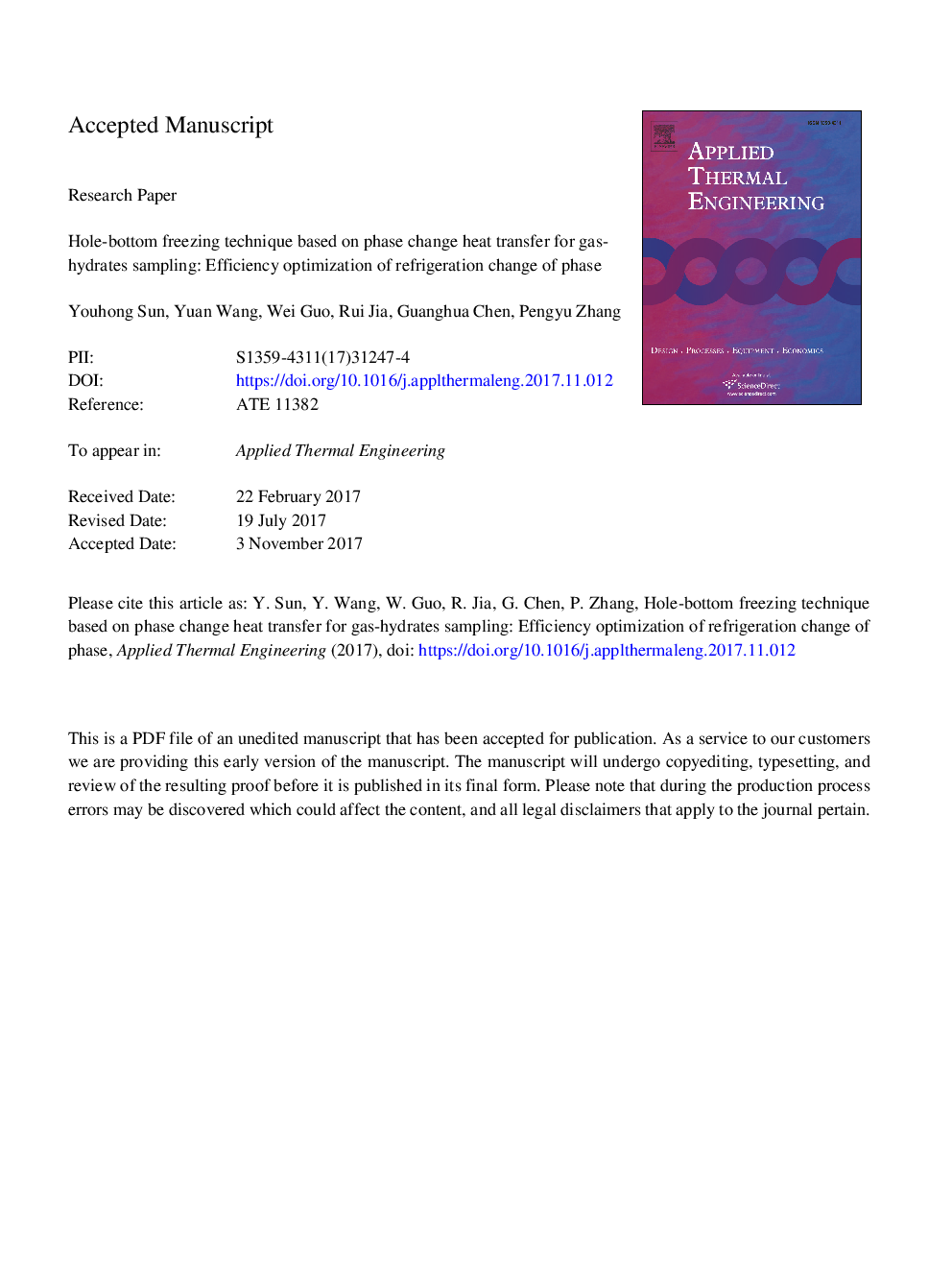ترجمه فارسی عنوان مقاله
تکنیک انجماد سوراخ پایین بر مبنای تغییر انتقال فاز برای نمونه برداری از گاز هیدرات ها: بهینه سازی کارایی تغییر فرایند تبرید
عنوان انگلیسی
Hole-bottom freezing technique based on phase change heat transfer for gas-hydrates sampling: Efficiency optimization of refrigeration change of phase
| کد مقاله | سال انتشار | تعداد صفحات مقاله انگلیسی |
|---|---|---|
| 98804 | 2018 | 49 صفحه PDF |
منبع

Publisher : Elsevier - Science Direct (الزویر - ساینس دایرکت)
Journal : Applied Thermal Engineering, Volume 130, 5 February 2018, Pages 722-734
ترجمه کلمات کلیدی
نمونه برداری هیدرات گاز، تغییر فاز، انتقال گرما، بهینه سازی کارایی، تبرید گازسیون،
کلمات کلیدی انگلیسی
Gas hydrates sampling; Phase change; Heat transfer; Efficiency optimization; Gasification refrigeration;

